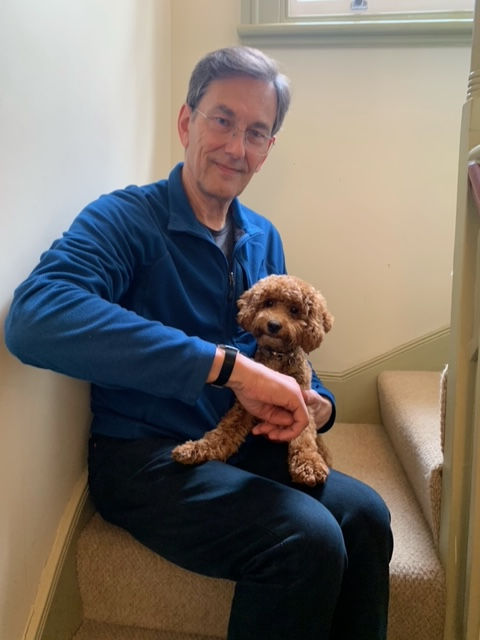Martin Vessey
- Spot Leukaemia

- Sep 5, 2023
- 3 min read
Martin Vessey was 61 when he was diagnosed with chronic lymphocytic leukaemia (CLL). Now 65, Martin is sharing his experience of Watch and Wait and what he would improve about the sometimes anxiety-inducing period.

“I was very unwell with influenza which then became a very bad cough for a month or so and I was delirious; I also had severe night sweats, aching limbs, and muscles. I seemed to bruise easily too. After 3 months the GP surgery agreed to a review (previously stating it was a bad flu and would improve). They took a blood test, and I was called back the next day for a review with the GP. The GP was excellent and thought it was a blood cancer but that he had not enough information about the results, and I was referred to the local hospital fairly quickly and seen by a consultant.
The hospital was very much matter of fact with my diagnosis, but the GP was very helpful; I was his first CLL patient and he admitted that he needed to learn more about this but he was very supportive, honest and open.
Management
The local hospital was functional but seeing a different doctor each time offers little well-being confidence. I understood that the GP surgery is a general health facility and with no specialisation, I cannot expect too much from them.
There were times when I felt a little low and frustrated at the lack of interaction with the local hospital but with a lot of research and charities such as Leukaemia Care, real medical websites and arranging to be accepted at the London Hospital and the Observation Research has helped deal with some unknowns. Webinars and social media tools have been great to appreciate how fortunate I am, when listening/reading other CLL Watch and Wait patients.
Ultimately, the healthcare system is not joined up in care in the context of Watch and Wait. It’s not that supportive unless you do your own research and find the institutions to support you. Initially, the GP was very useful, but the specialist London Hospital has been excellent, but we had to find this out by our own research.
COVID-19
During COVID-19, it was disappointing that the local hospital and the observational study hospital stopped face to face meetings as I missed the physical checkups which help you feel at ease when physically your spleen, liver and lymph nodes have not made major changes.
My wife and I did our own research and found an observational study, which we joined, and this has been very useful (no face to face for 2 years) as it reduced the time between the meetings at the local hospital and offered reassurance and someone else to talk with.
We also got accepted at a specialist cancer hospital in London, where I have found the greatest knowledge, support, and care for patients on Watch and Wait.
Watch and Wait
We are all different with fear, lack of understanding of CLL, outcomes, what to tell people, wanting to find help and support and so on. It would be useful to have more specialist nurses whom we could contact rather than going through the GP system where you wait 2 weeks for a telephone consultation.
We all worry about health issues and with CLL you can never be sure whether an issue is important. Watch and Wait needs to be seen as a form of treatment by GPs and the wider NHS, giving sufferers greater and easier access to support and knowledge, even if it is only a 111 CLL number, but talking with a specialist.
More regular face to face consultations would be helpful with a CT review every 2 or 3 years and a harsh but realistic review of any movement from Watch and Wait to different stages. If bloods have gotten worse, spleens have enlarged, liver and kidney cysts growing, severe night sweats and/or extreme fatigue – tell the patient where they sit, in which stage and what treatment may be needed and why. ”
Martin’s symptoms of leukaemia were:
• Night sweats
• Bruising
Are you currently experiencing similar symptoms to Martin’s? If so, contact your GP and ask for a blood test.
Early diagnosis saves lives.
_edited.png)



Comments